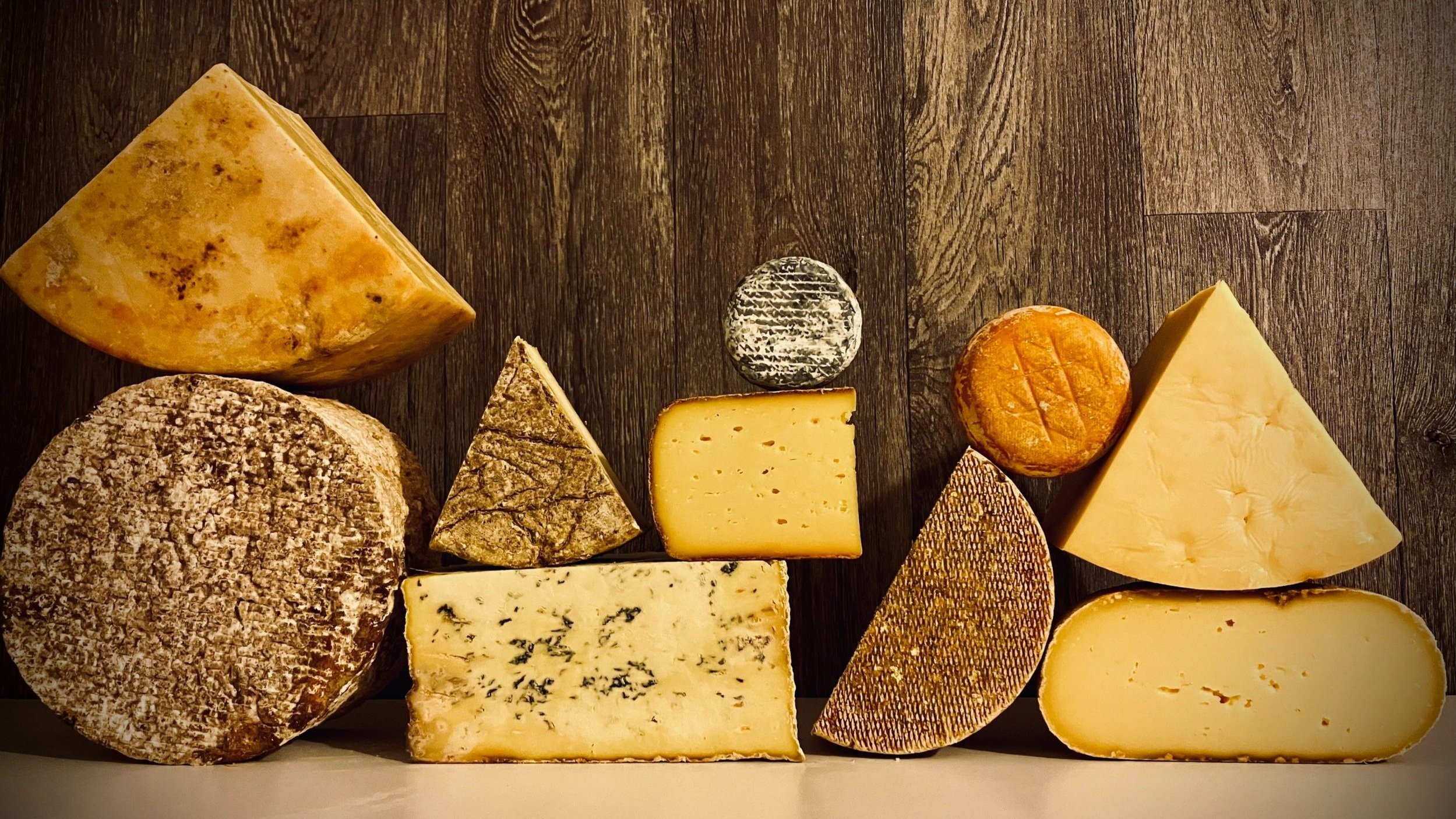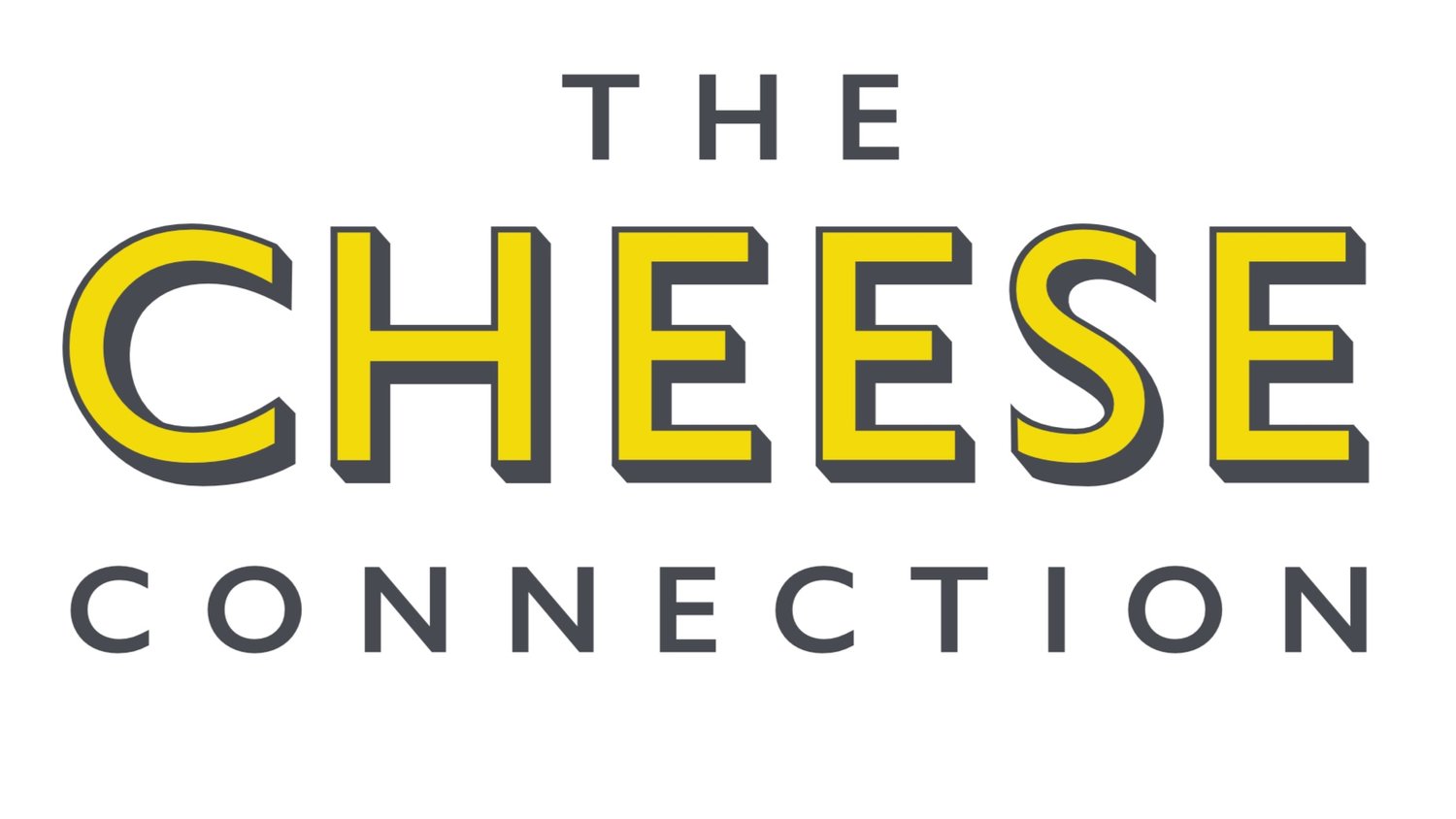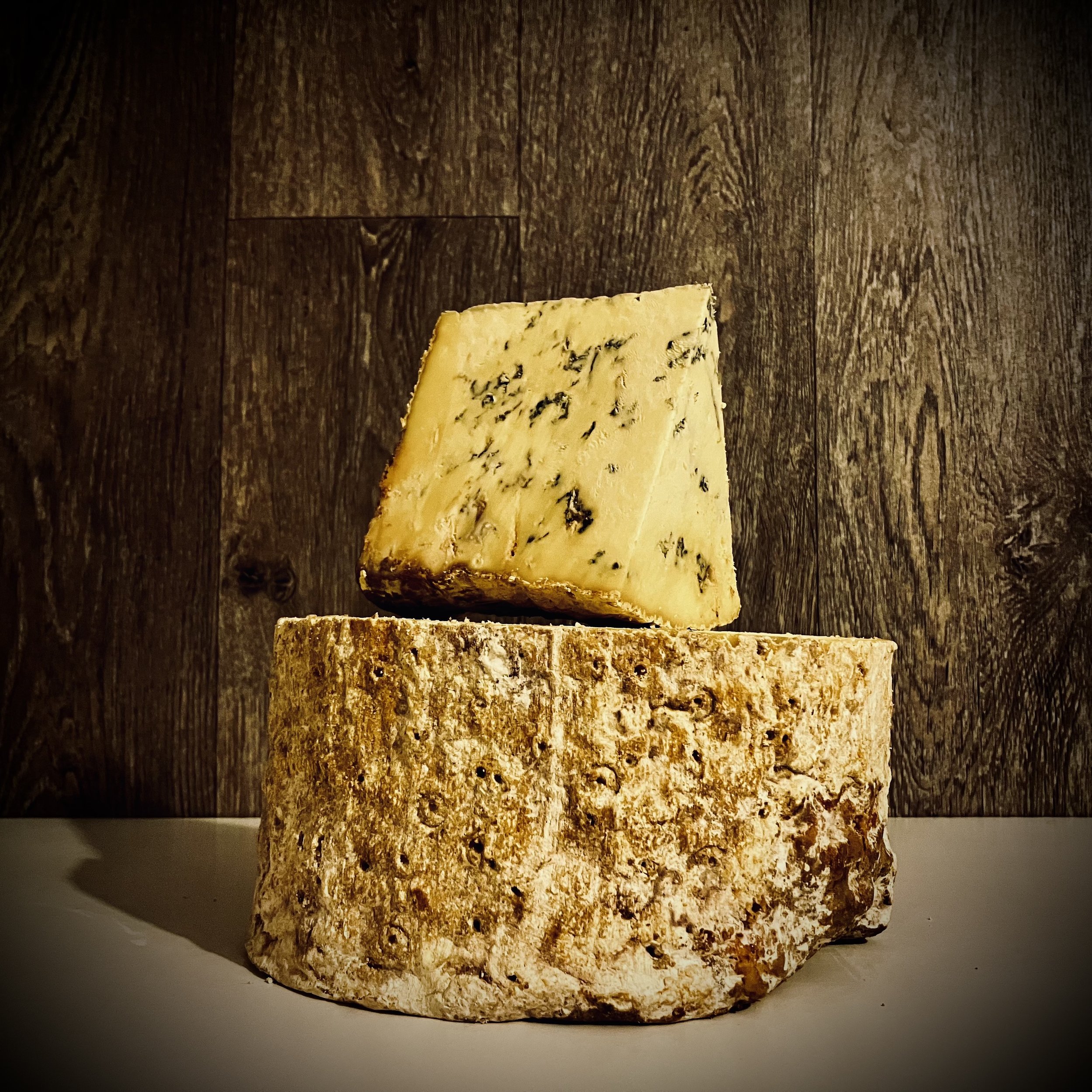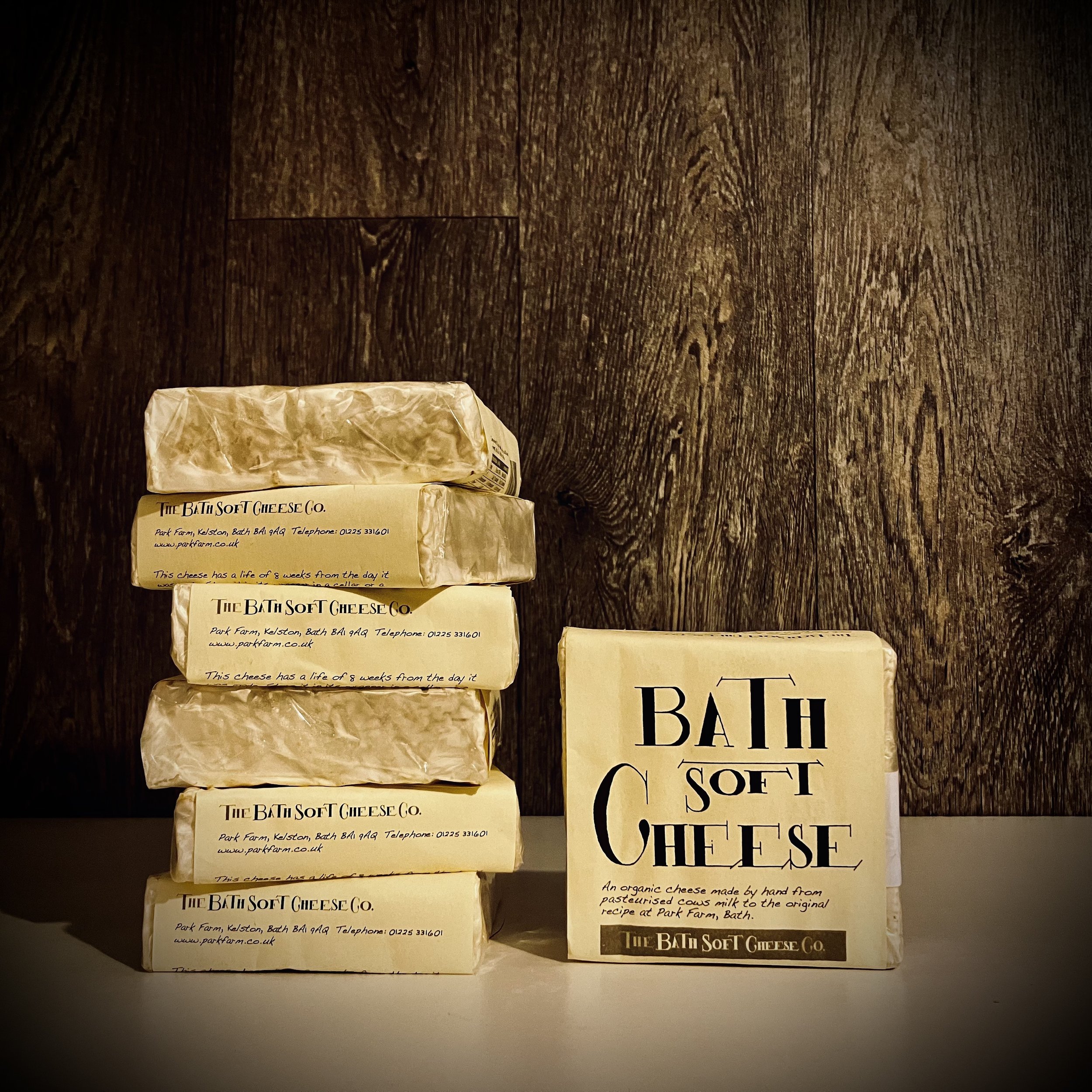
Pairing Cheese and Wine (and beer)…
Why do people pair cheese and wine?
People pair cheese and wine because the flavours and textures of both complement each other well. The saltiness, creaminess, and sharpness of cheese can balance the acidity and tannins of wine, and vice versa. Additionally, certain types of cheese can enhance the flavours of one another
Can you give an example?
Sure! A classic example of a cheese and wine pairing is a dry white wine, such as a Sauvignon Blanc, paired with a tangy and acidic goat cheese. The acidity and fruitiness of the wine can balance the tangy and creamy flavours of the cheese, while the wine's minerality can enhance the cheese's earthy notes. Another example would be a full-bodied red wine such as a Cabernet Sauvignon paired with a sharp and nutty cheddar cheese. The tannins in the wine will help to cut through the rich and creamy cheddar cheese, while the bold fruit flavours in the wine will complement the nutty and sharp flavours of the cheese.
What would you pair with stilton and other blue cheeses?
Stilton is a type of blue cheese that is known for its strong, tangy, and slightly nutty flavour. It is a perfect pairing with a sweet and rich dessert wine such as a Port or Sauternes. The sweetness of the wine will balance the strong and tangy flavour of the cheese and bring out the nutty and earthy notes. Additionally, the high acidity of these wines will cut through the creamy and rich texture of the Stilton.
Another option would be a full-bodied red wine such as a Shiraz or a Cabernet Sauvignon. The bold tannins and dark fruit notes of these wines can stand up to the strong and tangy flavour of the Stilton. The pairing of Stilton with a fruity red wine can also bring out the nutty and earthy notes of the cheese.
In general, when pairing wine with blue cheese, it's always good to have a wine that is not too dry and has a good balance of acidity and sweetness.
What would you pair with Farmhouse Cheddar?
Farmhouse cheddar is a type of cheddar cheese that is made using traditional methods and is aged for a longer period of time than most other cheddar cheeses, which gives it a sharper and more complex flavour. A good pairing for this type of cheddar would be a beer, such as a pale ale or an IPA, as the hoppy and bitter notes of these beers can cut through the rich and creamy texture of the cheese, while also complementing its sharp and savoury flavours.
Another option would be a full-bodied red wine, such as a Malbec or a Merlot. These wines have bold fruit flavours and soft tannins that complement the sharp and nutty flavour of the cheddar and the wine's acidity can cut through the cheese's richness.
Finally, a dry cider would be a good pairing for farmhouse cheddar. The sharpness of the cider will complement the sharpness of the cheese, while the acidity will cut through the creaminess.
In general, when pairing farmhouse cheddar with wine or beer, it's always good to have a drink that is not too dry and has a good balance of acidity and sweetness to balance the sharpness and saltiness of the cheese.
What would you pair with a soft cheese?
When pairing a soft cheese, such as a Brie or Camembert, you'll want to look for drinks that can complement its creamy and rich texture, while also balancing its mild and slightly nutty flavour.
A good pairing for a soft cheese would be a sparkling wine such as a Champagne or Prosecco. The acidity and bubbles of these wines can cut through the creaminess of the cheese and bring out its subtle nutty and fruity flavours.
Another option would be a fruity white wine, such as a Riesling or a Gewürztraminer. These wines have a good balance of sweetness and acidity that complement the creaminess of the cheese, while also highlighting its subtle flavours.
Finally, a light beer such as a lager or a pilsner would also pair well with a soft cheese. The carbonation and lightness of these beers can cut through the creaminess of the cheese, while the lightness will not overpower the mild flavor of the cheese.
In general, when pairing soft cheese with wine or beer, it's always good to have a drink that is not too dry and has a good balance of acidity and sweetness to balance the creaminess of the cheese.
In Conclusion:
When pairing cheese with wine or beer, it's important to consider the flavors and textures of both the cheese and the drink in order to create a balanced and complementary pairing.
For hard and sharp cheeses, such as Cheddar, Stilton, and Parmesan, it's often best to pair them with full-bodied red wines or beers that can stand up to their strong flavors and cut through their richness. Examples include Cabernet Sauvignon, Malbec, IPA, and pale ale.
For soft and creamy cheeses, such as Brie, Camembert, and goats, it's often best to pair them with lighter and more acidic drinks such as sparkling wines, fruity white wines, or light beers. Examples include Champagne, Prosecco, Riesling, Gewürztraminer, lager, and pilsner.
For blue cheeses, such as Roquefort and Gorgonzola, it's often best to pair them with sweet and rich dessert wines or fruity red wines. Examples include Port, Sauternes, Shiraz, and Cabernet Sauvignon.
In general, when pairing cheese with wine or beer, it's always good to have a drink that is not too dry and has a good balance of acidity and sweetness to balance the sharpness and saltiness of the cheese.
Most Importantly: Pairing Cheeses with Wines should be considered a fun and enjoyable activity. There is no real right and wrong way to do it, it’s an opportunity to try something new and make your own decisions. Have a chat with friends and family. Have a difference of opinion. Make some notes. Try something else new. Try the opposite of our advice. Agree or disagree, it doesn’t matter. Just have a nice time.
🧀 EAT FARMHOUSE CHEESE 🧀

-

Montgomery's Cheese
-

Westcombe Dairy
-

The Old Cheese Room
-

Homewood Cheese
-

Bath Soft Cheese Co.
-

White Lake




